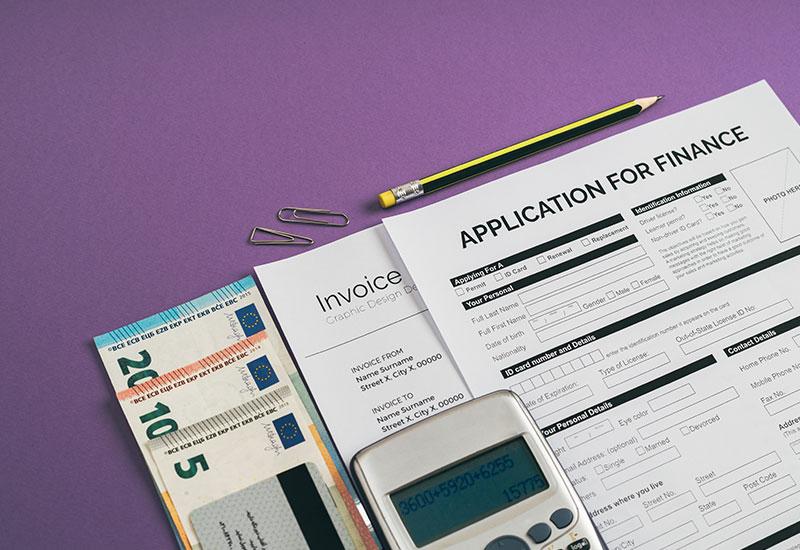Why Are Children Ideal Targets for Identity Theft—Main Reasons Explained

Start Building Your
Child’s Credit
Millions of U.S. children have had their identities stolen in only the last few years. If you’ve read all the gloomy statistics—or perhaps even had first-hand experience with this issue—you might want to know why children are ideal targets for identity theft.
There are several reasons child identity theft has become so prevalent. This article highlights them so that you can take the necessary steps and protect your child from such a severe crime. You’ll discover the best methods for safeguarding your child’s information and learn why a premium identity protection service might be a wise idea.
How Does Child Identity Theft Occur?
Financial criminals have gone beyond impersonation and now resort to various strategies for defrauding financial and government institutions. Instead of pretending to be someone else, they create an entirely new identity by stealing a child’s personally identifiable information (PII) and combining it with made-up data.
This is known as synthetic identity fraud, which has been tied to numerous types of criminal activity, including the following:
- Healthcare fraud
- Financial and tax fraud
- Drug and human trafficking
Still, the most common use of synthetic identities involves credit fraud. The scammer uses a child’s information to obtain loans in their name and disappear without repaying it. Such fraud can go on for quite a while, as synthetic identities are difficult to trace—which is precisely why children’s information is so desirable to fraudsters.
Why Financial Criminals Target Children
Scammers steal children’s identities for three main reasons:
- Children don’t have a credit history
- They have randomized Social Security numbers (SSNs)
- Their identities aren’t closely monitored
Children Don’t Use Their Identities To Obtain Credit

The vast majority of minors don’t have a credit history because they don’t have access to financial products like loans and credit cards. The only exception is if you’ve added a child as an authorized user of your card, in which case they get a credit profile and inherit your credit history. And even in that case, your credit history is removed from their profile as soon as you remove them as an authorized user.
In all other cases, scammers see a child’s identity as a blank slate. There are no red flags to warn the credit bureau or the lender as the child’s SSN hasn’t been used to obtain credit, which enables credit fraud.
Children Born After 2011 Have Randomized SSNs
Up until June 2011, SSNs contained three parts:
- Area number
- Group number
- Serial number
If your child was born after June 25, 2011, their SSN doesn’t have any geographical significance or date of issuance attributes, as this is when the Social Security Administration (SSA) decided to start randomizing SSNs.
As a result, it’s more difficult to connect the SSN to its legitimate owner, which is a significant loophole that fraudsters exploit. It’s also the reason synthetic identity fraud can go unnoticed for quite a long time.
Children Aren’t Subject to as Much Monitoring as Adults
Your identity is under the supervision of several institutions, like the government and banks. Whenever you use your SSN to apply for any government-backed initiatives or loans, there’s a record of it. This isn’t the case with children, as their identities aren’t used for such purposes.
A lack of monitoring makes it easier for a criminal to steal and manipulate a child’s personal information and create a new identity out of it. Such theft can happen in various ways, especially since children are none the wiser about the dangers of sharing their PII.
How Fraudsters Steal Children’s Information

There are three broad ways someone can get ahold of your child’s PII:
- Theft of physical documents
- Data breaches
- Online theft or manipulation
The first scenario happens as a result of a child’s sensitive documents being frequently shared among various parties. Foster children are a good example, as their information changes many hands during the adoption process.
Data breaches are the most common way fraudsters get ahold of someone’s PII. For example, through a cyber attack on a hospital or health care provider. However, due to the increased use of online services and social media, online theft has also become prevalent. Over the years, numerous malicious strategies have been developed to extract sensitive information from children. The following table explains the most common ones:
| Strategy | How It Works |
| Phishing | The scammer sends a spoof email or message impersonating a legitimate organization and asking the child for sensitive information |
| Financial aid scams | The child receives a financial aid offer and is asked to apply using their sensitive information. This type of fraud often targets high school or college students |
| Catfishing/grooming | The fraudster develops an online relationship with the child to build their trust and then asks the child for their private information |
According to Javelin’s whitepaper on child identity fraud, different types of fraud have resulted in over 900,000 children falling victim to this crime in 2022 alone. Luckily, there are ways to ensure your child doesn’t become a part of these statistics.
Tips for Protecting Your Child From Identity Theft

You shouldn’t wait for signs of fraud to take action, as it might be too late by the time you notice them. It’s better to have a foresighted approach to identity protection and safeguard your child’s personal information.
Some effective ways to avoid identity theft include:
- Protecting your child’s SSN—Don’t reveal your child’s SSN unless the requester can prove the legitimate need for it. Use your own information instead of the child’s whenever possible, and teach your child not to fill out sensitive forms without your oversight
- Teaching your child about online dangers—You can’t monitor everything your child does online, so you must teach them to protect themselves from fraudsters. Let them know they should never reveal their PII to anyone, regardless of how urgent the request might seem
- Freezing your child’s credit profile—Putting a security freeze on a child’s credit profile prevents new lenders from accessing it, so the scammer can’t open credit accounts in the child’s name. Note that this method still doesn’t fully prevent identity theft—it only offers protection in the context of credit accounts
Doing all of the above yourself can be a challenging task, as you need to stay on the constant lookout for danger. You’d also need to go through complex and time-consuming procedures. For example, freezing your child’s credit report involves separate requests with all three credit bureaus:
- Equifax
- Experian
- TransUnion
Credit profile monitoring is a safer and more convenient alternative. If you want your child’s credit profile to be watched over by experts, FreeKick can help.
FreeKick—A Two-In-One Identity Protection and Credit Building Platform
FreeKick by Austin Capital Bank is an FDIC-insured deposit account that helps you protect your family’s identities while building credit for your children. Child identity theft occurs every 30 seconds, which is why investing in identity protection services like FreeKick is more important than ever.
Use FreeKick for Identity Protection
FreeKick’s identity protection service is for the entire family. For adult children and parents, FreeKick offers:
- Credit profile monitoring
- SSN monitoring
- Dark web monitoring for personal information
- Up to $1 million identity theft insurance
- Full-service white-glove concierge credit restoration
- Lost wallet protection
- Court records monitoring
- Change of address monitoring
- Non-credit (Payday) loan monitoring
- Free FICO® Score monthly
- FICO® Score factors
- Experian credit report monthly
For minors, FreeKick offers:
- Credit profile monitoring
- Social Security number (SSN) monitoring
- Dark web monitoring for children’s personal information
- Up to $1 million identity theft insurance
- Full-service white-glove concierge credit restoration
- Sex offender monitoring—based on sponsor parent’s address
Use FreeKick for Building Credit
FreeKick also offers a credit building service for children aged 13 to 25. All you have to do is take three steps:
- Create an Account—Navigate to FreeKick.bank, create an account, and choose a deposit that suits your budget
- Set It and Forget It—FreeKick will start building 12 months’ worth of credit history for your children
- Keep Growing—After 12 months, you can close the account without any fees or continue building credit for your family for another year
As a result of this minor effort, your children will have up to five years of credit activity when they turn 18. In turn, this head start will help them save $200,000 during their lifetimes by letting them secure loans on more favorable terms.
FreeKick Pricing
FreeKick has two pricing plans:
| FDIC-Insured Deposit | Annual Fee |
| $3,000 | $0 (Free) |
| No deposit | $149 |
Each plan offers:
- Credit building for six children aged 13 to 25
- Identity protection for two parents and six children aged 0 to 25
Save your family from identity theft and give them a bright financial future—sign up for FreeKick today.